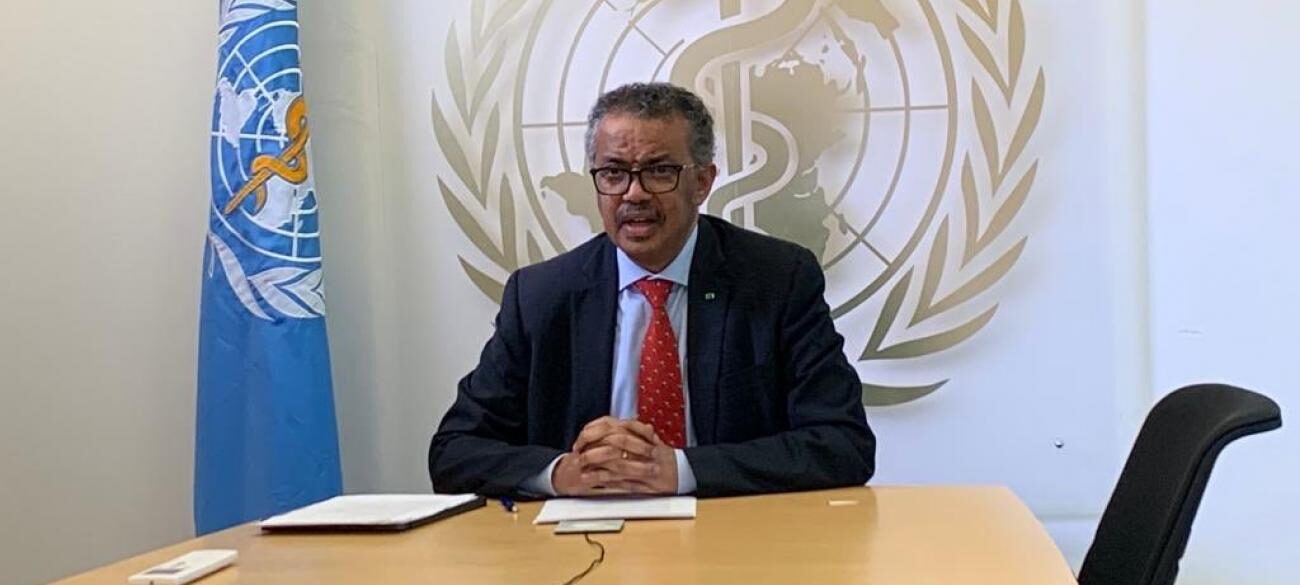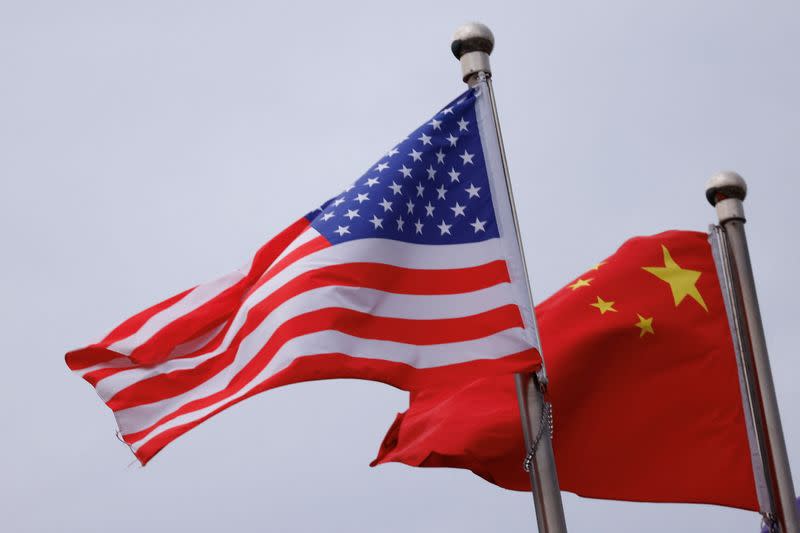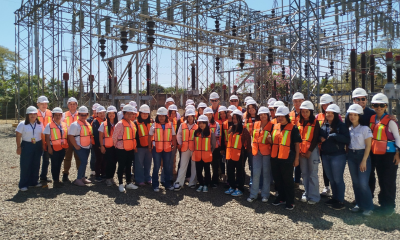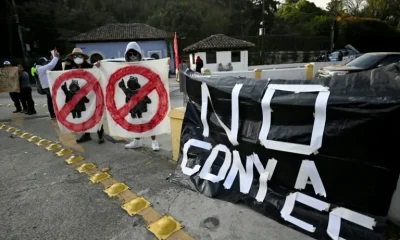International
World can end Covid emergency this year: WHO chief

AFP
The head of the World Health Organization said on Monday that the planet can end the Covid-19 emergency this year, although the virus last week killed someone every 12 seconds.
“We can end Covid-19 as a global health emergency and we can do it this year,” Tedros Adhanom Ghebreyesus told the UN health agency’s executive board.
To do so, countries need to work harder to ensure equitable access to vaccines and treatment, track the virus and its emerging variants, and keep restrictions in place, he warned.
The WHO has for months demanded that countries do more to accelerate the distribution of vaccines in poorer nations, calling on all countries to vaccinate at least 70 percent of their populations by the middle of this year.
Half of the WHO’s 194 member states missed the previous target of vaccinating 40 percent of their people by end-2021 and 85 percent of people in Africa were yet to receive a single jab, Tedros said.
“We simply cannot end the emergency phase of the pandemic unless we bridge this gap,” he said.
“On average last week, 100 cases were reported every three seconds, and somebody lost their life to Covid-19 every 12 seconds,” he added.
Covid-19 has killed more than 5.5 million people since it first emerged in late 2019 and case numbers have been driven to record levels by the new Omicron variant.
Since the strain was first detected in southern Africa nine weeks ago, Tedros said 80 million cases had been reported to the WHO — more than in all of 2020.
Omicron appears to cause less severe disease than previous variants and Tedros confirmed that “the explosion in cases has not been matched by a surge in deaths”.
The WHO chief said the world would need to learn to live with Covid.
“We will need to learn to manage it through a sustained and integrated strategy for acute respiratory diseases,” he said, emphasizing it was “dangerous to assume that Omicron will be the last variant, or that this is the end game.”
“On the contrary,” he said, “globally the conditions are ideal for more variants to emerge.”
“The potential for a more transmissible, more deadly variant remains very real.”
Central America
Guatemala’s Attorney General Consuelo Porras Loses Bid for Constitutional Court Seat

Guatemala’s attorney general, Consuelo Porras, who has been sanctioned by the United States over corruption allegations, lost a key vote on Monday in which a public university selected two of the 10 magistrates for the country’s highest constitutional court. However, she could still seek a seat through another nominating body.
The election of five full magistrates and five alternates to the Corte de Constitucionalidad (CC) is taking place gradually over more than two months and is considered crucial in the ongoing struggle for control of Guatemala’s judiciary, which critics say has long been influenced by a political and economic elite accused of corruption.
According to results announced at a press conference, the governing council of the Universidad de San Carlos de Guatemala (USAC) rejected Porras, who had applied as either a full or alternate magistrate, and instead chose two candidates aligned with the university rector. The vote was held at a hotel in Antigua, about 35 kilometers from the capital.
Despite the setback, Porras — whose term as attorney general ends on May 16 — could still be nominated to the Constitutional Court by the Corte Suprema de Justicia, which appoints two magistrates. The remaining six are selected by the president, the bar association and Congress.
“It’s always a possibility,” the 72-year-old lawyer said days earlier when asked by reporters whether she would seek nomination through another institution if she lost the USAC vote.
Porras has been sanctioned by Washington and the European Union for allegedly attempting two years ago to block the inauguration of President Bernardo Arévalo and for pursuing legal actions against anti-corruption prosecutors, judges, journalists and social leaders since taking office in 2018.
The USAC vote was controversial because most members of the university’s governing council are serving beyond the expiration of their terms. Students, academics and social activists staged protests against Porras’ candidacy.
International
Florida judge sets 2027 trial in Trump’s $10 billion lawsuit against BBC

A federal judge in Florida has scheduled February 2027 for the trial in the lawsuit filed by U.S. President Donald Trump against the BBC, in which he is seeking $10 billion in damages for defamation.
Trump accuses the British broadcaster of airing a misleading edit of a speech he delivered on January 6, 2021, which, he says, made it appear that he explicitly urged his supporters to attack the U.S. Capitol in Washington.
The president filed the suit in December in federal court in Florida, alleging defamation and violations of a law governing business practices when the program was broadcast ahead of the 2024 election.
Trump is seeking $5 billion in damages for each of the two claims.
Lawyers for the BBC unsuccessfully asked the court to dismiss the case, arguing that Trump had not suffered a “legally recognizable harm,” since the investigative program Panorama, which included the edited footage, aired outside the United States.
International
Head-of-state diplomacy key to guiding China–U.S. ties, Beijing says

Head-of-state diplomacy plays an irreplaceable strategic guiding role in China–United States relations, Chinese Foreign Ministry spokesperson Lin Jian said on Thursday during a regular press briefing, when asked about high-level exchanges between the two sides.
Lin added that in a recent phone call, U.S. President Donald Trump once again expressed his intention to visit China in April, while Chinese President Xi Jinping reiterated his invitation.
Both sides remain in communication regarding the matter, the spokesperson said.
Lin noted that the essence of China–U.S. economic and trade ties lies in mutual benefit and win-win outcomes.
“Both parties should work together to implement the important consensus reached by the two heads of state, injecting greater certainty and stability into China–U.S. economic and trade cooperation, as well as into the global economy,” he said.
-

 International5 days ago
International5 days agoHead-of-state diplomacy key to guiding China–U.S. ties, Beijing says
-

 International5 days ago
International5 days agoFlorida judge sets 2027 trial in Trump’s $10 billion lawsuit against BBC
-

 Central America3 days ago
Central America3 days agoGuatemala’s president denounces MP raids during Constitutional Court election
-

 International5 days ago
International5 days agoTrump administration to end special immigration operation in Minnesota
-

 Central America2 days ago
Central America2 days agoTeens visit ETESAL substation to learn about responsible energy use
-

 Central America19 hours ago
Central America19 hours agoGuatemala’s Attorney General Consuelo Porras Loses Bid for Constitutional Court Seat


























